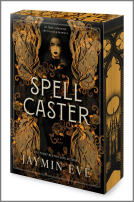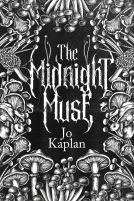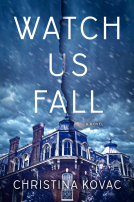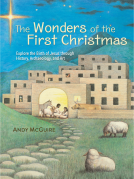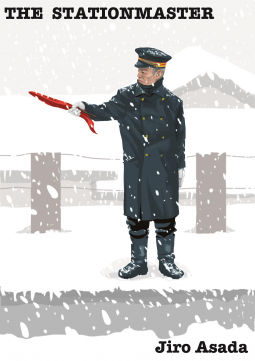
The Stationmaster
Stories
by Jiro Asada
This title was previously available on NetGalley and is now archived.
Send NetGalley books directly to your Kindle or Kindle app
1
To read on a Kindle or Kindle app, please add kindle@netgalley.com as an approved email address to receive files in your Amazon account. Click here for step-by-step instructions.
2
Also find your Kindle email address within your Amazon account, and enter it here.
Pub Date Jun 10 2016 | Archive Date Jul 07 2016
Description
Jiro Asada's The Stationmaster is among the most cherished works by this very well-known Japanese writer, and it's a great pleasure to be able to introduce this version to English readers.….. Some of them—like the stationmaster of the title story—belong to a world that is traveling very fast and leaving them behind; their accomplishments are the kind nobody important recognizes or values; they fill positions that will soon be obsolete; they’ve spent a lifetime of hard work that has led to very little. What does the life of the old stationmaster, Otomatsu, add up to from the world's point of view? Or the life of the dying sex-trade worker in “Love Letter”? Hardly a whisper.
–from “Introduction” by Margaret Atwood, author of The Handmaid's Tale, and a current Vice-President of PEN International.
The award-winning author revives a time when men lived like true men, proudly fulfilling their responsibilities. People still honored the dignities in life, and lived for those they cared about, in the spirit of samurai. The devotion of these characters to one another is quiet and reserved, not overtly thought of as love, but in a sense it is. So this is a collection of love stories in a samurai way, set in contemporary Japan.
A Note From the Publisher
Foreign rights sold to South Korea, China.
Available Editions
| EDITION | Ebook |
| ISBN | 9784089600016 |
| PRICE | $9.98 (USD) |
Links
Average rating from 25 members
Featured Reviews
 Joseph S, Reviewer
Joseph S, Reviewer
The Stationmaster by Jiro Asada is a collection of short stories with a common theme of touching miracles. Asada is a former enlisted man in the Japanese Self-Defense Forces and now a prolific writer with some seventy novels printed over seventeen years. In the introduction, Margaret Atwood explains that this book sold 2.5 million copies in Japan, a nation of 127 million people. Put into perspective that would equate to 6 million copies in America. That is completely unheard of for a collection of short stories.
I admit it. I am a sucker for a train story and that is the reason I chose this book. I was pulled in from the start -- a soon to be retiring stationmaster, on a very quiet route, running old trains. Otomatsu is a man who remembers the old days when the Kiha 12 was a new and shining train. Now it is old and is limited to runs for school children. Otomatsu remembers when the long coal trains ran his route; they are all gone now. He still wears his old uniform (instead of the new style) and executes his duties with the precision of a Marine. Like a Marine, he holds a similar motto, "Once a railroad man, always a railroad man." For Otomatsu, much of what his life was has disappeared. The railroad route will be retired. His wife has died a few years before. His daughter died as a young child. Asada writes to bring a miracle or moment of happiness to a man whose world has and is closing in on him.
The other stories were good and all a bit different. None of them took me in as The Stationmaster did. "Love Letter" was moving in a completely different manner and quite unexpected. "The Devil" was a bit eerie like a Hitchcock short or Night Gallery episode. The other stories reminded me of a Hallmark story or movie. Things worked out too nicely and too perfectly. Perhaps this style of writing is popular in Japan. Asada is known for his picaresque novels which gained my interest, however, that style is lacking here.
I have a rather mixed review of this collection. It did hold my interest, but it is not my typical read. I was pulled in with a train story and stayed for the picaresque. I wanted more of that nostalgia of growing old and seeing the what made my youth so important slowly disappear... like steel mills, handwriting letters, drive-in theaters, radio.... I should have looked at the other stories before I jumped into this book. The writing is excellent. The stories have a nice twist and some originality before the “Hallmark” moment. Recommended for readers who like those "just so" stories.
 Kathleen D, Reviewer
Kathleen D, Reviewer
It might not be a style the Western World is used to, but having read a few Japanese to English translations of different authors when I lived in Okinawa, I easily related. The Stationmaster is a beautiful story. Having lived in Okinawa, there is a pride Japanese have in their work and their lives. They put their heart and soul into everything they do and certainly Otomatsu is grieving for his life as a stationmaster. With the loss of a wife and child, the loss of joy his job brought him the reader awaits beauty to arrive in his life again, seemingly coming to an end. Asada’s stories all contain a sprinkle of the magical but nothing fantastical. There is a difference in culture that is evident in Japanese stories, sometimes the Western World misses out on the details that give the stories heart.
The Festival of Lanterns is also a story in this collection that I really enjoyed. Chieko is raised by her paternal grandparents when both her mother and father decide to basically abandon her for ‘new lives with different partners and children’- fresh family so to speak. When her grandparents pass away, maybe her grandfather isn’t as ‘gone’ as she thought. The Obon or Bon Festival is a Japanese Buddhist custom to honor the spirits of one’s ancestor. We knew Americans with Japanese spouses that weren’t even allowed to attend them, going from house to house, visiting and cleaning graves, reuniting with family- it’s a beautiful tradition. We would see paper lanterns on the water and floating in the sky, in this story Chieko is unfamiliar with the tradition and her grandfather crosses great lengths to come to her rescue so to speak, from her husband’s family. Family is vital in Japan and in marriages. I think this is my favorite story next to The Stationmaster.
They are sad with small miracles, and it’s a lovely collection. Different from American short stories and yet just as enjoyable. Because the supernatural bend isn’t outrageous it makes the stories more grounded. Lovely
Shueisha Publication Date: Jun 10 2016
 Richard L, Reviewer
Richard L, Reviewer
This is one of the real benefits of NetGalley and publishers promoting books through this site thus allowing readers to dip into genres or authors they wouldn't otherwise consider or find for themselves.
The Stationmaster is the first story of eight in this collection of short stories under that title. My copy included an excellent introduction by Margaret Atwood, with the author's own reflection of this piece and a brief Q & A.
The author is Japanese and reads and writes only in his native tongue. That I could read it therefore is only possible to the wonderful translation by Terry Gallagher assisted by Sayuri Kingsbury and vision of publishers Shueisha, Inc.
Apparently within Japan their is a real love for short stories and Jiro Asada is a celebrated author of this short format as well as longer novels. I am no longer ignorant of this recognition and I long for similar exports like we once embraced Nordic Noir.
Asada mentions these differences in story telling, the disciplines required and opportunities to experiment with voice and perspective. It likes being back in school enjoying the lesson without fear of a test or homework. The essential magic of this reading experience for me is the opening of doors and windows to a new world where you have absolute trust in your guide, the writer. To glimpse another culture, compare and contrast the familiar but strange, the new but understanding it all. To enjoy the tea plantations, snowscapes and rich colours and blossoms, while encountering tradition, family honour and religious customs is a delight. It provides reading new depths to imagined locations, sights and smells overwhelm the senses and an awareness of the Unknown stalks the pages.
The majority of the characters are down on their luck, a life on the other side of the tracks. Reality with ambition to do well but with a knowledge of hunger, want and misfortune. Into each story comes a new opportunity, a chance to overturn the odds or just be accepted by ones peers and make ones family proud.. Some insight or miracle to transform to sense peace or realise contentment.
Beautifully told, real and personal. These stories transcend their time and culture, above they show a worthwhile belief in humanity.
My short story collection adventure continued this week with a venture to Japan via The Stationmaster. Coming with a glowing introduction from Margaret Atwood, this is an anthology which was awarded the Naoki Prize and sold 2.5 million copies in Japan which given population size is like an equivalent American book selling 6 million. This doesn't really happen for short fiction, although to be fair I think the form is more popular in Japan than it is in the Western world. The point is that The Stationmaster received a great deal of success and so I was intrigued to find out more.
In the 'Instead of an Afterword', Asada explains that the over-arching theme to the collection is how lives can be touched by miracles. The titular story is perhaps the most affecting, featuring Otomatsu, an aging stationmaster on the point of retirement, patiently working his route even as it too heads towards closure. Gone are the glory days when the Kiha 12 was bright and shining new train, transporting coal to the big cities - now all it's for is school runs. Widowed and with a baby daughter who died decades before, there is little of light in Otomatsu's life and the spark of happiness that Asada brings him feels like a true act of kindness.
Few of the other stories carried that same almost-magical impact but each had a poignancy of their own. My own particular favourite was "In Tsunohazu", where Kyoichi Nukui, a middle-aged man going through a career crisis, attempts to understand why his father abandoned him decades before. He attempts to translate this act of callousness into a form of love of its own - it was heartbreaking to read Asada explain that this story was inspired by his own life. The child Nukui's scrabbling attempts to extract from his father a promise to return are undramatic and yet Asada still makes them harrowing. Again, Asada allows for a sense of closure - something one suspects he was never able to grant to himself.
Asada is not afraid to summon up the supernatural in his fiction - in "The Festival of Lanterns", a family ghost steps forward to resolve the situation, despite the apparent realism of the stories and the ordinary characters, there is little clear demarcation between the living and the dead. The latter story was particularly affecting, with the orphan woman visiting her husband's in-laws only to have them turn against her - Chieko's loneliness and sense of being adrift without family is obvious so that when back-up arrives, the reader can truly sense her relief. The values, standards and superstitions within the stories of The Stationmaster were sometimes difficult to relate to - I know very little about Japanese culture, which was one of the reasons why I picked up this book in the first place. Nevertheless, the common feeling of disconnection which ran through the stories was something that I could identify with. In "Invitation to the Orion Cinema", long-term separated couple Yoshie and Yuji visit the old cinema where their romance was originally kindled, each of them stubborn but tinged with regret - a happy ending seems impossible and yet, and yet ... These were everyday circumstances, sprinkled with just a tinge of the fairy-tale.
Asada's stories lacked the same subtlety of Pearlman, but yet each chapter was complete in and of itself. I am not sure that I would pick up the collection again but yet I found each story individually captivating - a really refreshing sojourn on my short story search weaving the miraculous into mankind's daily struggle.
 Mainon S, Librarian
Mainon S, Librarian
I've been working on reading more works in translation, and this collection of short stories that catapulted author Jiro Asada to fame in Japan in the late 1990s fit the bill. This new English translation contains an introduction by Margaret Atwood, who is clearly intimately familiar with these stories. The stories included are:
The Stationmaster Love Letter Devil In Tsunohazu Kyara The Festival of Lanterns No-Good Santa Invitation from the Orion Cinema
Of these, the title story (about a retiring stationmaster in a tiny town where the station is being closed down), Kyara (about a mysterious, maybe even magical, women's clothing boutique), and The Festival of Lanterns (about a woman whose husband wants to divorce her, and she has no living family to stand up for her) have all stayed with me. Somehow the force of these stories is so compelling that, short as they are, the characters burst to life in my imagination and left their footprints there.
 Janette M, Librarian
Janette M, Librarian
It was ok not for browser readers. I would give to those who enjoy fantastical short stories.
 Mandy J, Reviewer
Mandy J, Reviewer
I don’t often read short stories, but the ones in this collection are truly excellent. Jiro Asado is one of Japan’s most popular writers and this volume has been a bestseller – very much, I imagine, largely on the strength of the first story out of the eight, The Stationmaster, which has even had a film made from it – the sort of film you need a big box of tissues for if the trailer is anything to go by…..Be that as it may, it’s a wonderfully simple story, with a touch of magic realism, about a stationmaster at an isolated station who has always put duty first - and it’s very sad. All the stories are about lonely or marginalised people, ordinary people, and all of them are tender, warm-hearted and gentle. Highly recommended.
 Beverley H, Reviewer
Beverley H, Reviewer
A interesting collection of stories not written in the usual way. Well translated to make easy reading.
 Cathy B, Educator
Cathy B, Educator
Melancholic stories with a touch of the supernatural. I took a chance on this, requesting an advance copy on Netgalley and was pleasantly surprised. The collection is apparently a huge succes in Japan and it's easy to understand why. All the protagonists are ordinary people who are in one way or another disappointed with life or missing someone important to them. A bit of magic helps them cope. I haven't read a lot of Japanese contemporary fiction and this collection gives the reader a feel of Japanese society and the lives and challenges of ordinary people. Nicely written, a bit sad, but true to life.
 Neal H, Reviewer
Neal H, Reviewer
A lovely collection of Japanese stories, beautifully translated. The stories presented a revealing insight to Japanese culture, especially a preoccupation with death and mortality! Each tale is absorbing and satisfying in its own way, with vivid characterisations using just a few words, I hope to read more of Jiro Asada's books in the future.
 Denise W, Reviewer
Denise W, Reviewer
I thoroughly enjoyed this collection of short stories by Japanese author Jiro Asada. He is a well-known and beloved writer in Japan, but this is my first time reading him. These are, for the most part, stories of magic realism; the supernatural (or the imagined?) makes an appearance in several of them. Underlying many of the stories is a feeling of nostalgia and regret. All of them feature characters who are, above all else, ordinary people in extraordinary situations.
My favorites include the following:
The Stationmaster (title story) in which an aging railroad stationmaster is facing the loss of his job as the line he runs becomes obsolete. He is looking back at his past and regretting the times he put the line ahead of his family. It has a bittersweet ending.
Festival of Lanterns is about Cheiko, a woman who is visiting her husband’s parents' home to celebrate the first O-bon since his grandfather’s death. O-bon is a day celebrating the spirits of the dead, and in folk culture the day when spirits may return to earth. Cheiko’s husband is divorcing her because he has impregnated another woman. A baby is the one thing Cheiko has never given him. The family gangs up on her to force her to give in, until a mysterious man comes to the party and upsets the whole situation.
Invitation from the Orion Cinema features another unhappy couple who are considering divorce, until they accept the invitation to the old movie house they enjoyed as children. It is the last show before the theater closes forever, and they are drawn to it by an aching nostalgia for those happy times.
When I read the stories, I was impressed by the author’s knowledge of so many different worlds: the worlds of professionals and working people, and even a petty criminal named Santa. The author’s note at the end of the book shows how he gathered all of this information from personal experiences. I intend to read more from this writer when I can find it in translation.
I highly recommend this book. The stories are magical, powerful and tender all at the same time. I loved Margaret Atwood’s introduction. She’s one of my favorite authors.
Thanks to NetGalley for this ARC in exchange for an honest review.
Stark and concisely written (and translated) - and capable of evoking a mood or memory in that snapshot way that only short stories can. This collection, for me, especially feels like seeing into someone's lighted window for a brief moment when your train passes by. My only drawback, although this was a big one for me, was the overall bleakness of each of these worlds. Beautiful but a serious downer.
 Brooke W, Reviewer
Brooke W, Reviewer
Atmospheric collection of modern Japanese vignettes dealing with themes such as tradition, loss, and change.




